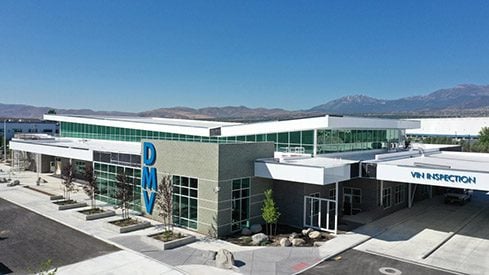By SAM METZ AP / Report for America
CARSON CITY, Nev. (AP) — Nevada lawmakers aren’t sure how the state should reimburse people who paid a $1 per transaction technology fee at the Department of Motor Vehicles that the state Supreme Court three months ago ruled unconstitutional.
Members of the Legislature’s Interim Finance Committee on Wednesday did not approve a $6 million proposal presented by DMV Director Julie Butler to send postcards to the roughly 2.35 million individuals and 240,000 businesses owed refunds. The cards outlined how to get money back or opt-out and donate it.
The panel elected not to vote on the work program to facilitate the refunds and asked Butler to return after more review. The fees were intended to help the department upgrade its aging computer system.
Butler said she and the state Treasurer estimated that it could cost from $50 to $60 to issue each $1 reimbursement check. The department planned to send postcards outlining how individuals could request paper checks or online transfers to get their money back. She said sending paper checks could overwhelm the state controller’s office and didn’t account for people who might not want to be reimbursed.
The reimbursements will conclude a contentious, years-long battle between Democrats and Republicans in the Legislature over whether Nevada’s constitutional requirement that taxes and fees win approval from two-thirds of lawmakers applies to extensions.
In 2019 after proposals to extend the tax and fee failed to pass, legislative attorneys advised Democratic leaders that they could prolong the technology fee and a payroll tax with simple majorities. Republicans sued and the state Supreme Court ruled unanimously that extending revenue measures required supermajorities.
Senate Minority Leader James Settelmeyer, a plaintiff in the case, accused Democrats of knowingly violating the constitution to push through their agenda. Democrats drew $7.8 million from the state highway funds to facilitate the reimbursements.
Republican Sen. Pete Goicoechea said lawmakers and the department should proceed knowing that the funds owed to DMV customers didn’t belong to them, while Democrats stressed the importance of ensuring the reimbursement process didn’t land them in court again.
“We should have agreement so that we don’t end up in the same spot a year from now and have to spend another $8 million to refund a couple million dollars,” Democratic Assemblywoman Maggie Carlton said. “We’re already spending more money on it than we probably should — money that could go to a lot of other places.”
In response to the Supreme Court decision, the Department of Taxation announced on Tuesday plans to refund $30.6 million in taxes and interest that the court ultimately struck down to businesses that filed payroll taxes from June 2019 to March 2021. Lawmakers on Wednesday approved a Department of Taxation request to fund an analyst position and the postage and printing costs to send reimbursement checks to over 22,000 businesses.
The Interim Finance Committee also approved $10.9 million in spending to fund 23 full-time positions at the Cannabis Compliance Board to license lounges where cannabis can be sold and consumed. Lawmakers passed a bill approving lounges in the spring.
Board director Tyler Klimas said he expected lounges to be licensed to open by early 2022 and, through the year, generate a projected $9.2 million in revenue to go toward K-12 schools.
___
Sam Metz is a corps member for the Associated Press/Report for America Statehouse News Initiative. Report for America is a nonprofit national service program that places journalists in local newsrooms to report on undercovered issues.

